Latching your trailer ball to the coupler allows your vehicle to move while maintaining a secure connection as you tow. If you can't latch it, you're probably wondering why and how you can resolve the problem. We researched this issue and have answers for you, so keep reading.
There are different reasons why your trailer ball won't latch, which you can try to resolve on your own. Here are the common causes of why this happens and their solutions:
- Misaligned tow vehicle and trailer - get your trailer closer to the hitch.
- The coupler nut needs adjustment - tighten or loosen the coupler nut.
- The trailer ball and coupler have rust - lubricate the trailer ball and coupler.
As we mentioned, you can fix many of the issues that keep a trailer ball from latching. But how exactly do you do so? We'll discuss this below, along with solutions to trailer balls that make rattling sounds. Scroll down to learn about these topics and other essential information about your trailer ball.
Causes And Solutions For A Trailer Ball That Won't Latch
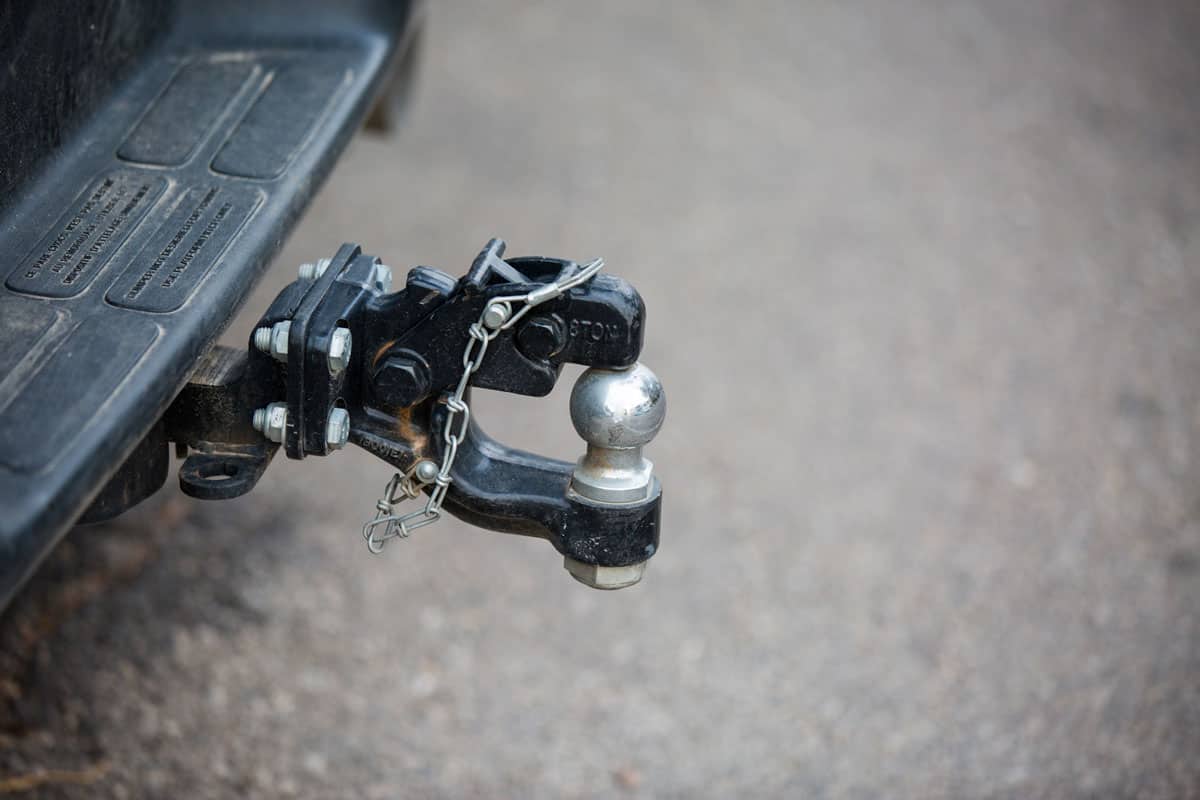
Towing requires your trailer ball to latch to your coupler. You probably already know how to do this, but what happens if the ball won't lock? Here are some of the possible causes of why this happens and how to resolve them:
Misaligned Tow Vehicle And Trailer
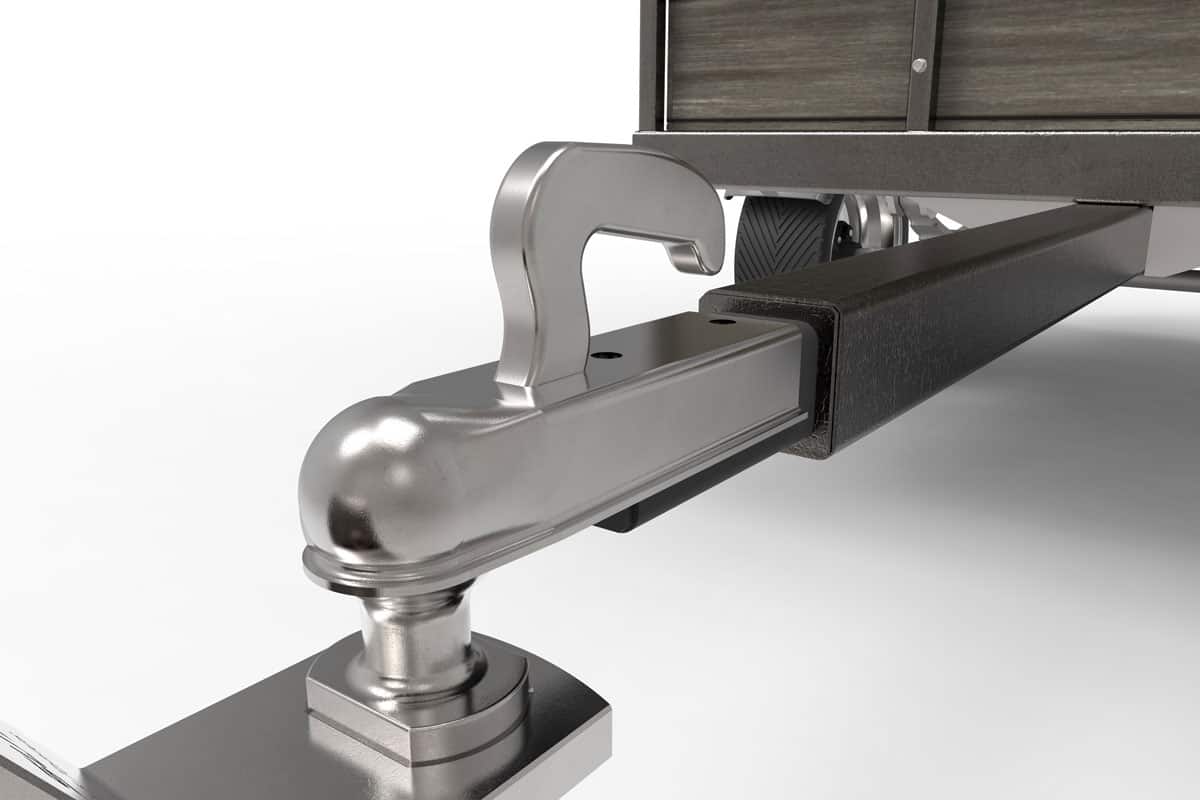
Your trailer ball will not latch to the coupler if your tow vehicle and trailer are too far from each other. You can quickly fix this issue by ensuring that your trailer and hitch are as close as they can be.
Check if your trailer is close to your tow vehicle. If it's too far off, back up your trailer until it's close enough. You must also monitor whether your trailer is bumping your hitch.
You can use a hitch alignment camera or rods if you don't have anyone to help you with this. But you can also have someone stand behind your trailer and let you know if the vehicle is close enough to your hitch.
Click here to see this hitch alignment kit on Amazon.
The Coupler Nut Needs Adjustment
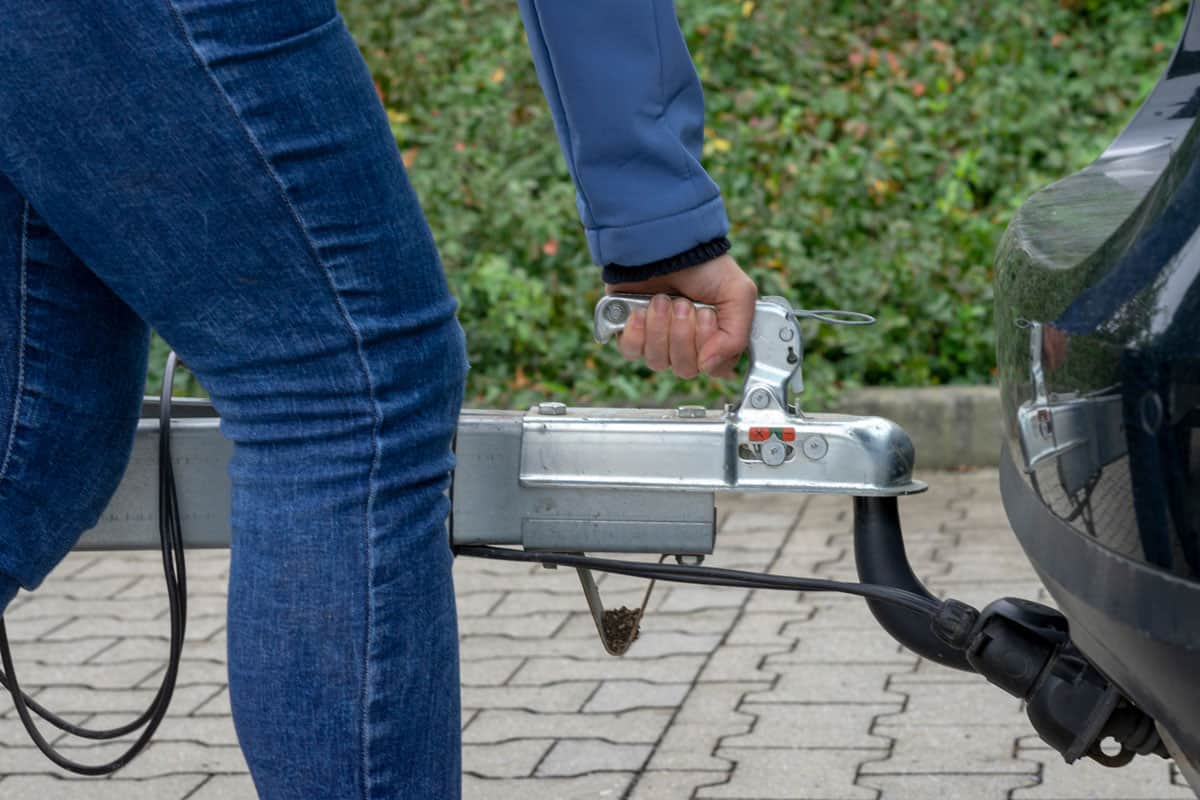
Your trailer ball should fit snugly inside your hitch coupler. If your coupler is too loose or too tight, the ball won't latch.
Your trailer ball might "jump off" from a loose coupler. Even if the ball and coupler latched just fine when you used them some time ago, that doesn't mean they won't come loose over time because of the ball rusting or its coatings wearing off.
You won't be able to close the latch if it's too tight. But the good news is, you can resolve this on your own.
All you have to do is to look for the tension nut under your coupler. This nut is attached to your coupler lever, so you only need to adjust this to tighten or loosen your coupler until the ball fits snugly inside.
Here's what you should do:
- Latch your trailer ball again and determine if your coupler is too loose or tight. It is too snug if you cannot rotate the trailer ball by hand or if the coupler lever won't close. Meanwhile, it may be too loose if you can turn the ball.
- Locate the nut under your coupler with your ball still latched on. Then tighten or loosen the nut accordingly.
- Test if the ball is secure on the coupler and if you can rotate the ball.
Check out this wrench set on Amazon.
The Trailer Ball And Coupler Have Rust
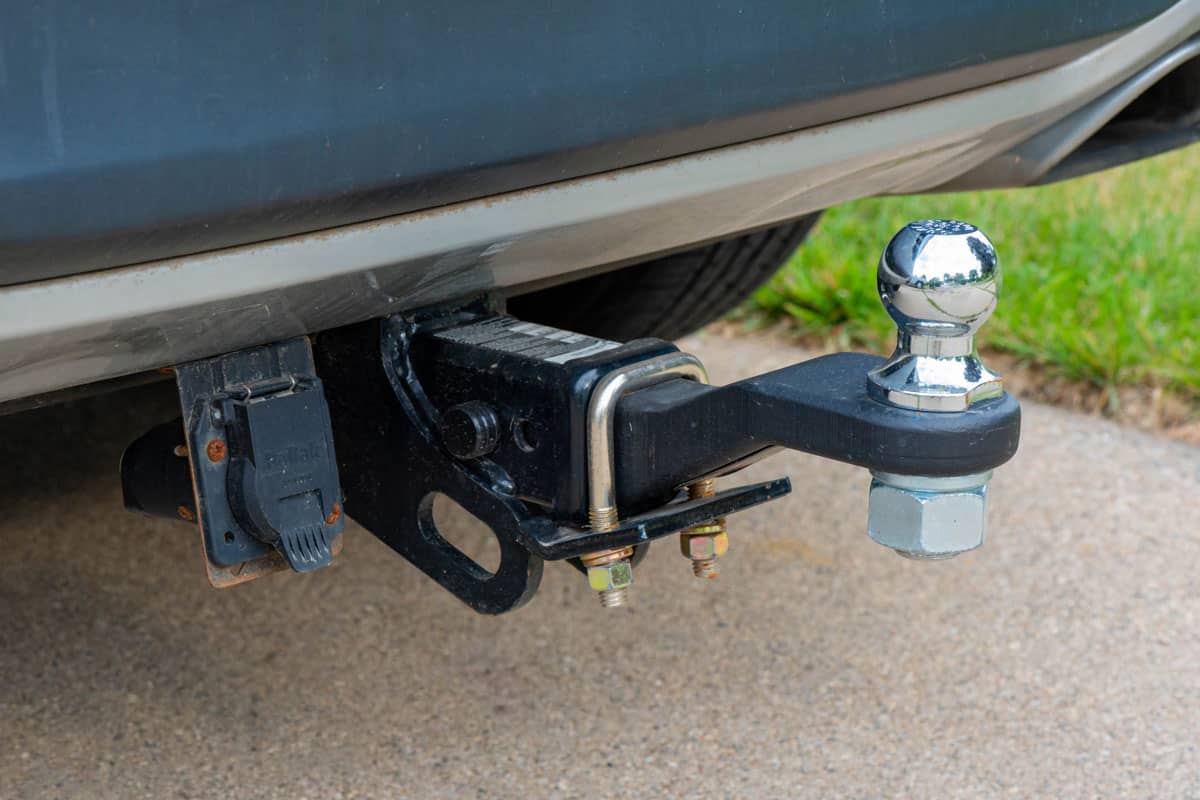
Over time, your trailer ball or coupler can rust so that they no longer latch easily. Rust can cause grinding and scraping on the ball and coupler, making it hard for you to lock them. You can resolve this issue by applying some graphite lubricant to the ball and the coupler.
Follow these steps to resolve the problem:
- Lightly sand your trailer ball and coupler (including the tongue where the ball goes to latch) using fine-grit automotive or metallic sandpaper. Doing this will help you remove some of the rust.
- Wipe down all the rust accumulated from sanding with a clean paper towel.
- Put on a pair of latex gloves and apply the grease on your trailer ball and the coupler.
Note that this solution is applicable if there's only little rust on your trailer ball or hitch coupler. If rust has penetrated the mechanism, you may need to use a new ball or hitch to tow.
See this automotive sandpaper on Amazon.
How To Stop A Trailer Ball From Rattling
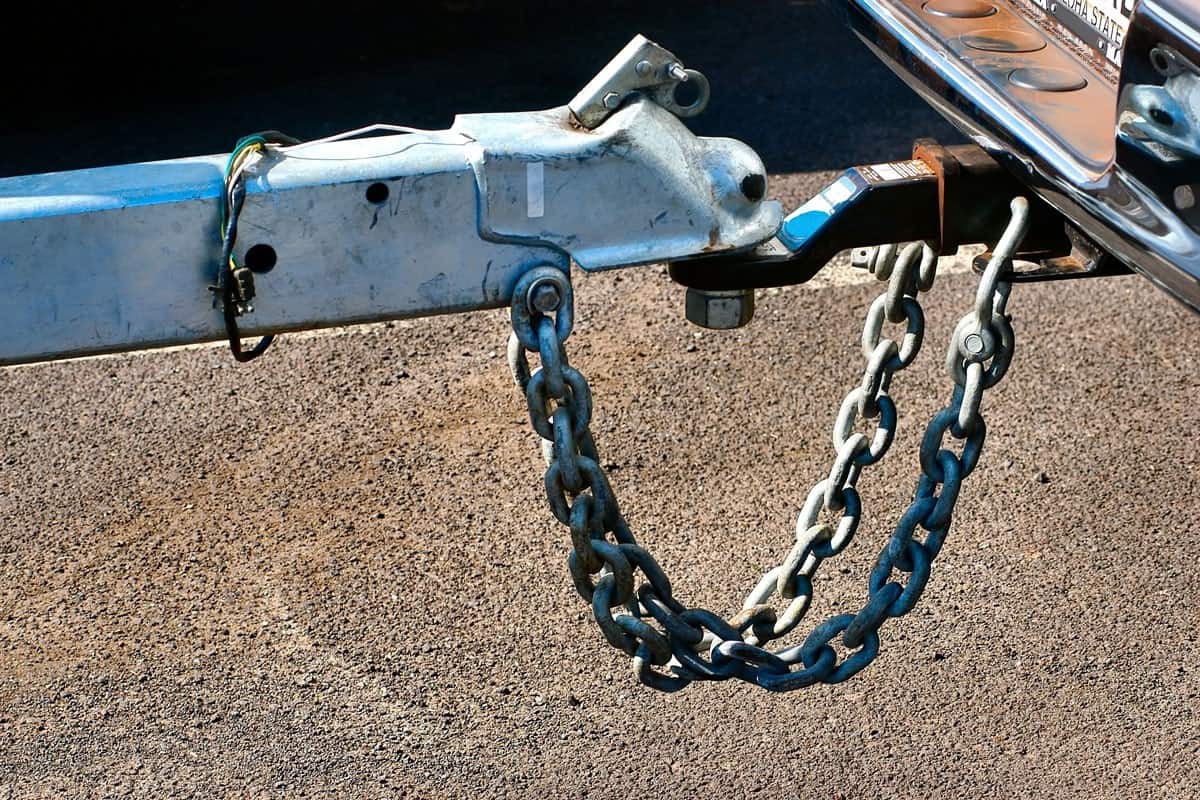
When you finish latching your trailer ball, you may notice that it makes a rattling sound as you tow.
This type of sound is typical for a trailer ball. But if it's too noisy, it may become dangerous for you. To stop this rattling sound and for a safer hitch setup, you can use these:
Cushion hitch
Metal can rattle when you drive on uneven or bumpy roads. A cushion hitch with a rubber inset and an airbag that absorbs these vibrations can prevent any rattling sound.
Click here to see this cushion hitch receiver on Amazon.
Weight Distribution Hitch and Sway Control Unit
A towing vehicle and trailer that aren't level because of excessive weight on the hitch's tongue can produce a rattling sound.
A weight distribution hitch that stabilizes your hitch by spreading the weight across the vehicle can help. The device has a sway control unit that keeps your towing hitch from moving side-to-side
Check out this weight distribution hitch on Amazon.
Anti-Rattle Clamp or Hitch Pin
Using these can eliminate rattling sounds from a trailer ball. They are installed against the shank, preventing vibrations inside the receiver, making them a great choice for trailer ball rattling noises.
Click here to see this anti-rattle hitch clamp on Amazon.
Best Trailer Hitch Coupler Locks
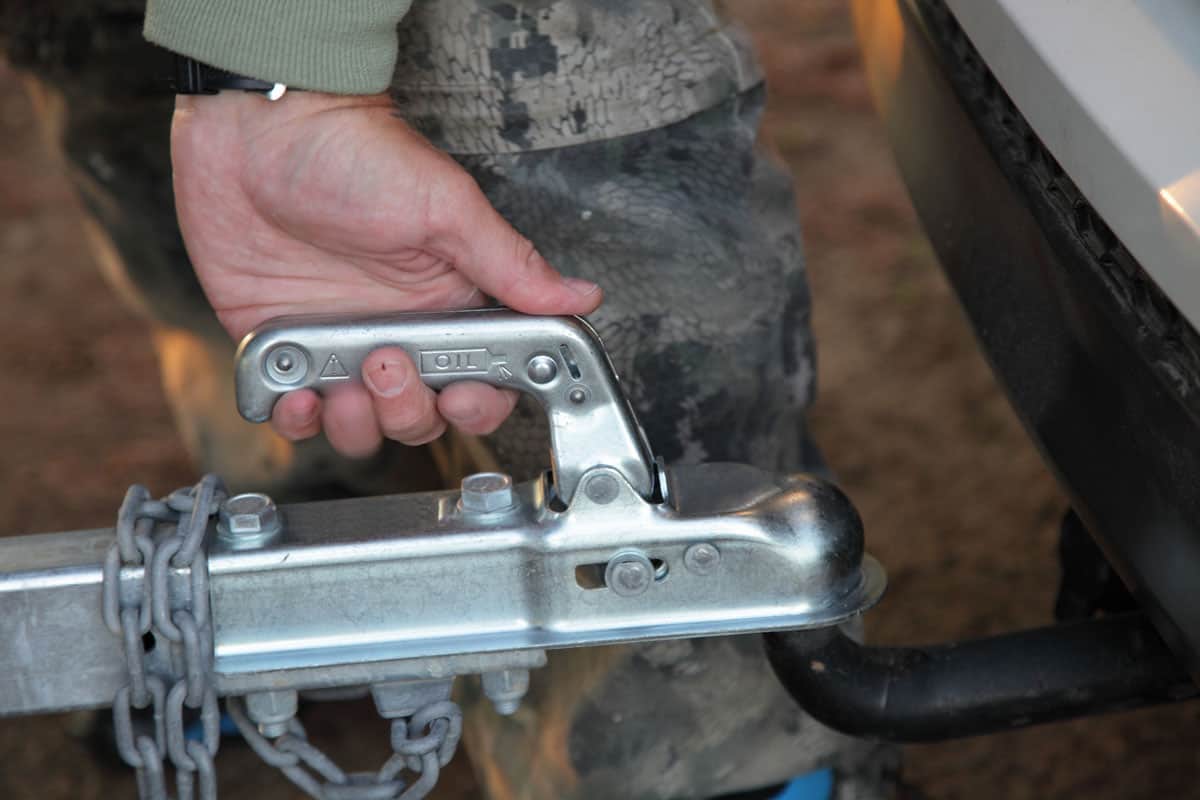
After successfully latching your trailer ball to the coupler, you can tow any vehicle. But, if you're going long distances and have frequent stopovers, you must ensure that your towing vehicle is safe from getting stolen.
This is where a hitch coupler lock comes in handy. With this in mind, take a look at this list of trailer hitch couple locks:
- Master Lock 389 DAT: this coupler lock is universal-sized, so you don't have to worry much about getting the right size for your coupler. Also, its mechanisms do not allow any picking and prying. Along with its low price, this coupler lock is best for you.
- Reese Towpower Coupler Lock: you can use this lock for any type and coupler size. For its cheap cost, it offers excellent protection against thieves with its aluminum and heavy-duty steel lock.
- Bolt Receiver Lock: the most significant advantage this type of lock provides customers is that you can use the key for your trailer. Because of this feature, you don't have to think about misplacing your lock's key. Additionally, they come at a reasonable price.
- Altor SAF: made with hardened steel, this lock offers maximum protection against thieves that even angle grinders and drills will not be able to cut them. However, note that this lock is also somehow expensive.
- Proven Industries 2516: this lock doesn't just offer protection against power tools that thieves can use; bolt cutters can't cut them too. Also, it comes with unique keys, so you can rest easy about thieves trying to pry them open. Though it is expensive, if you want to ensure that your vehicle is safe, this is your best choice.
Should A Trailer Ball Hitch and Coupler Be The Same Size?

Your trailer ball and coupler must match in size. The ball's diameter and the inside of the coupler should be precisely the same.
If they're different sizes, you'll have difficulty towing, and your trailer and the towing vehicle may disconnect. Check their stamped measurements to ensure that the ball and coupler are the same size.
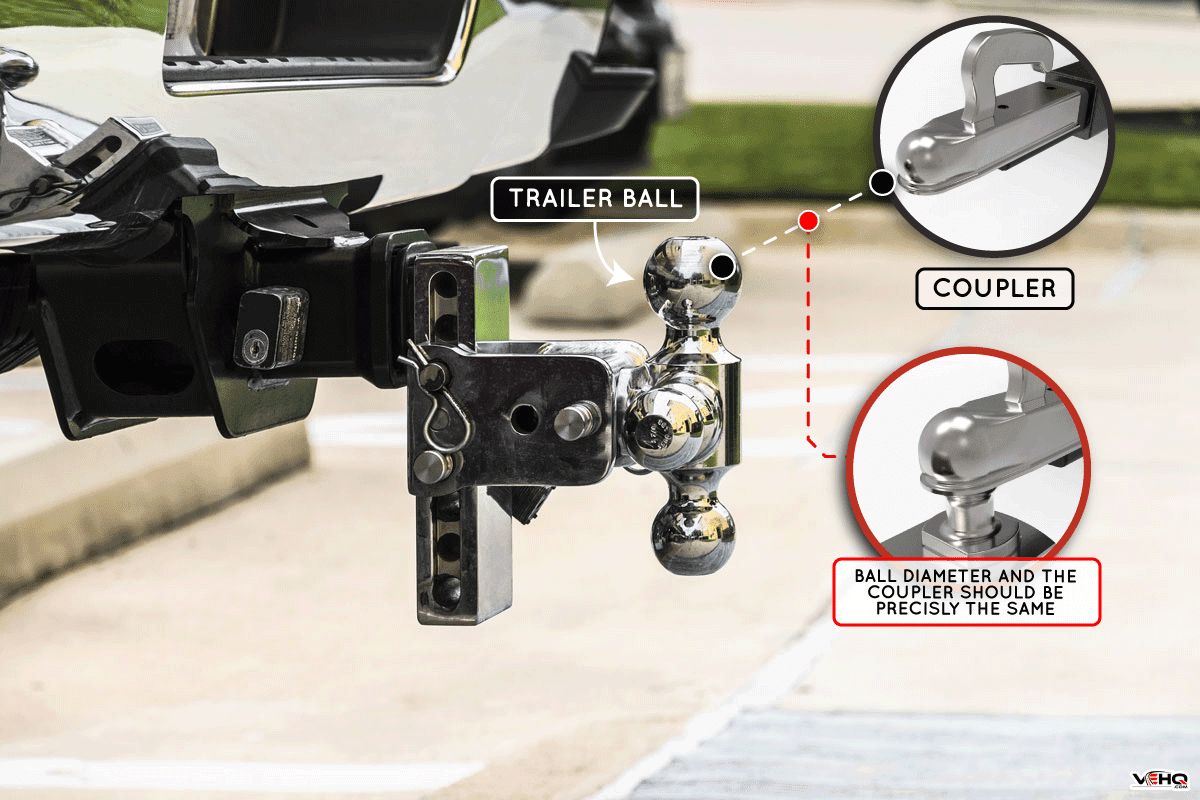
In Summary
A trailer ball that won't latch will undoubtedly stress you out. There are multiple reasons why this happens, mainly because your tow vehicle and trailer aren't aligned, the coupler nut needs adjustment, or their mechanisms have rust.
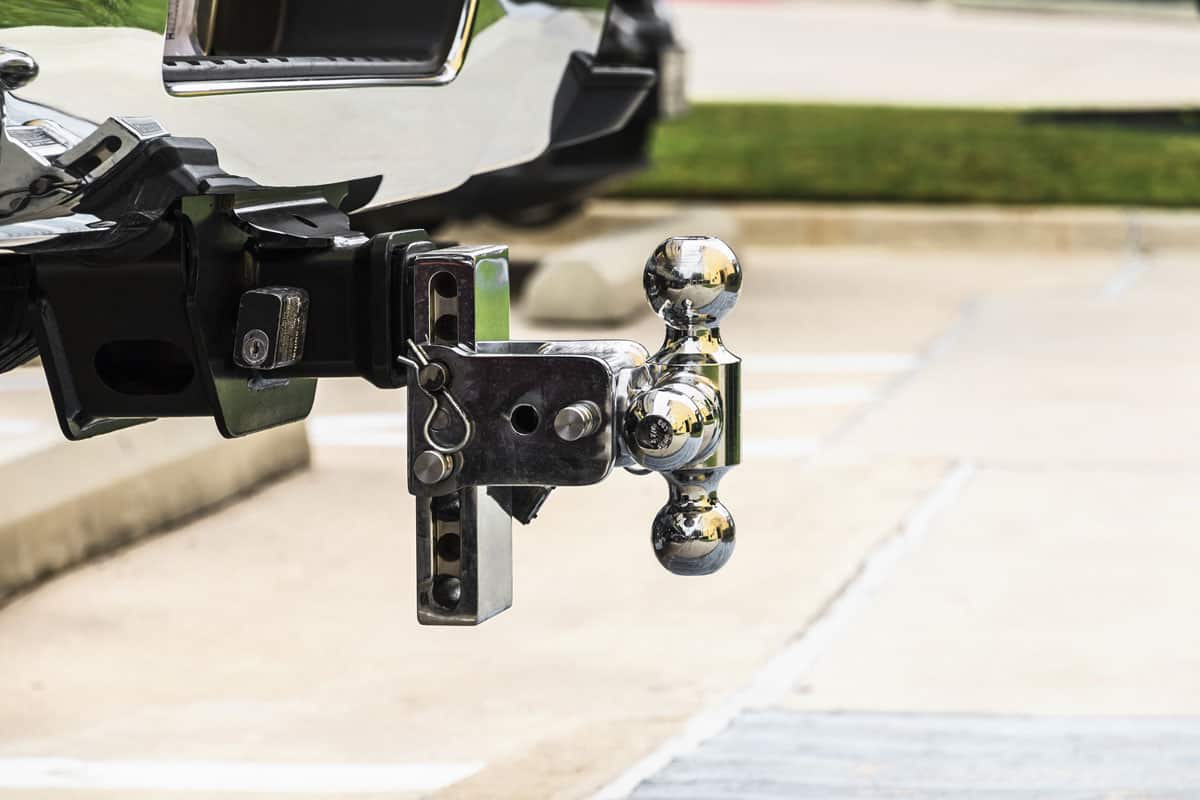
Whatever the reason, you can resolve them without needing a new hitch. You only need to get your trailer as close to the hitch as possible for a misaligned tow vehicle and trailer without bumping it.
You should adjust the nut under your coupler if it is too tight or loose. You can also lubricate your trailer ball and coupler if they are rusting.
Did you find the information in this post insightful? Read more informative articles about trailer balls here:
How To Get Trailer Hitch Off The Ball [Inc. Troubleshooting When Stuck]
How To Remove Rusted Trailer Hitch Ball [Step By Step Guide]






